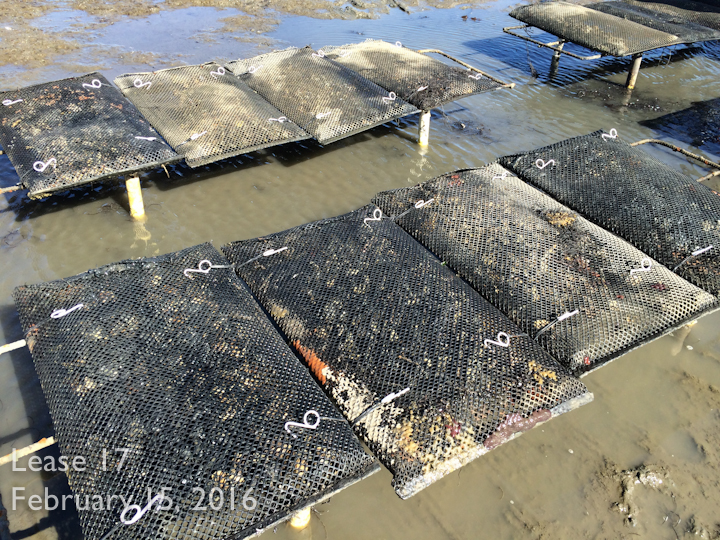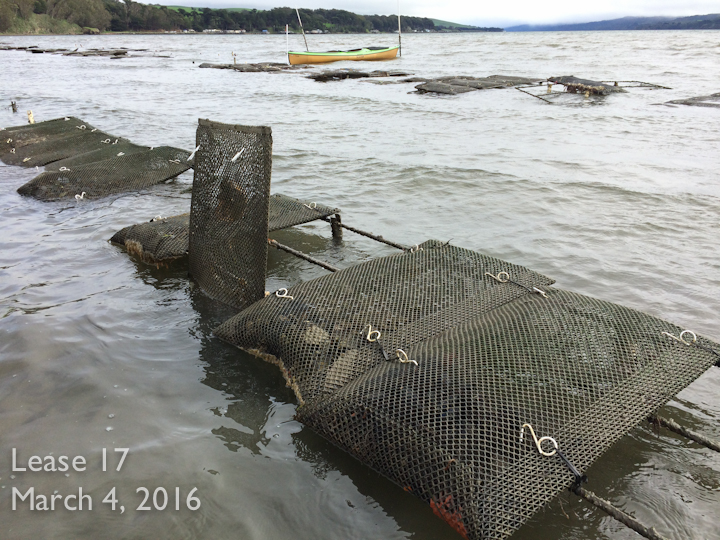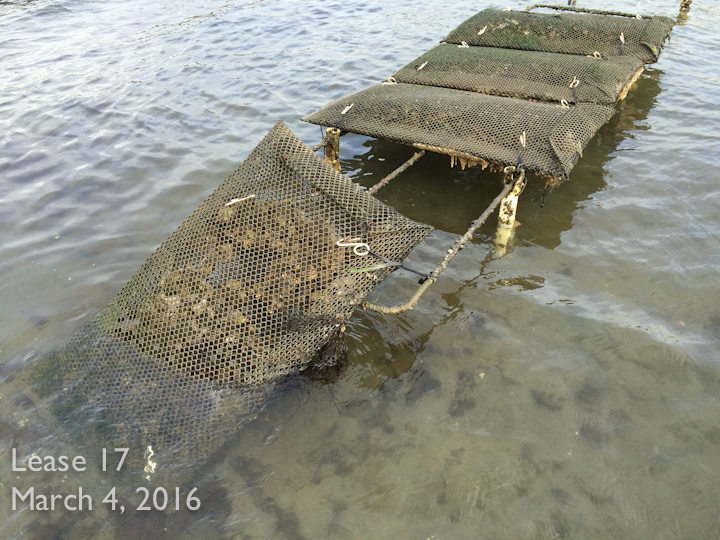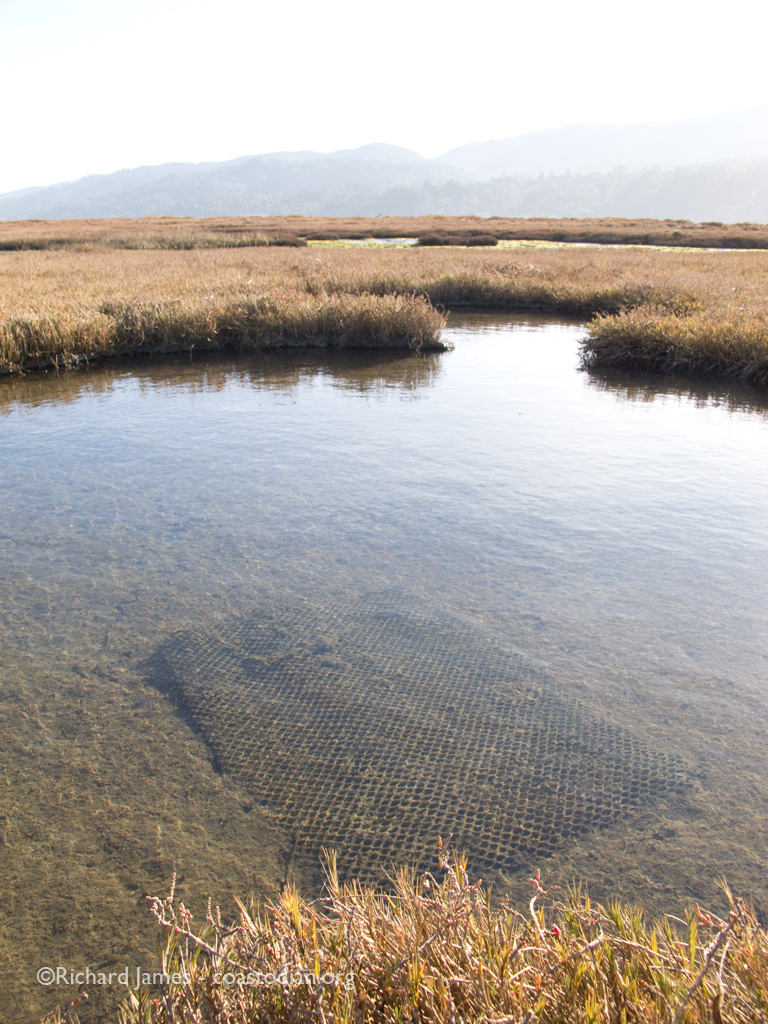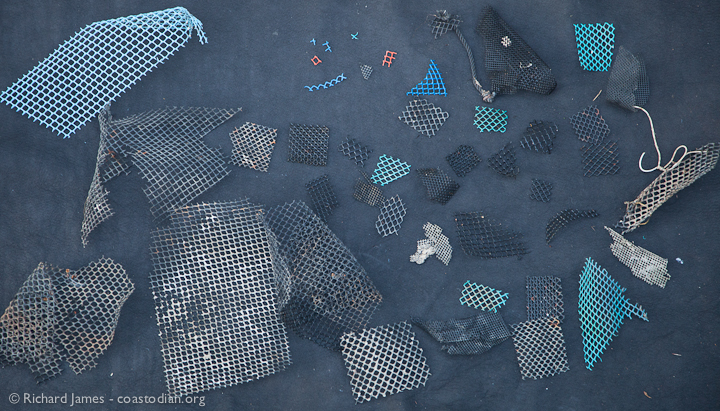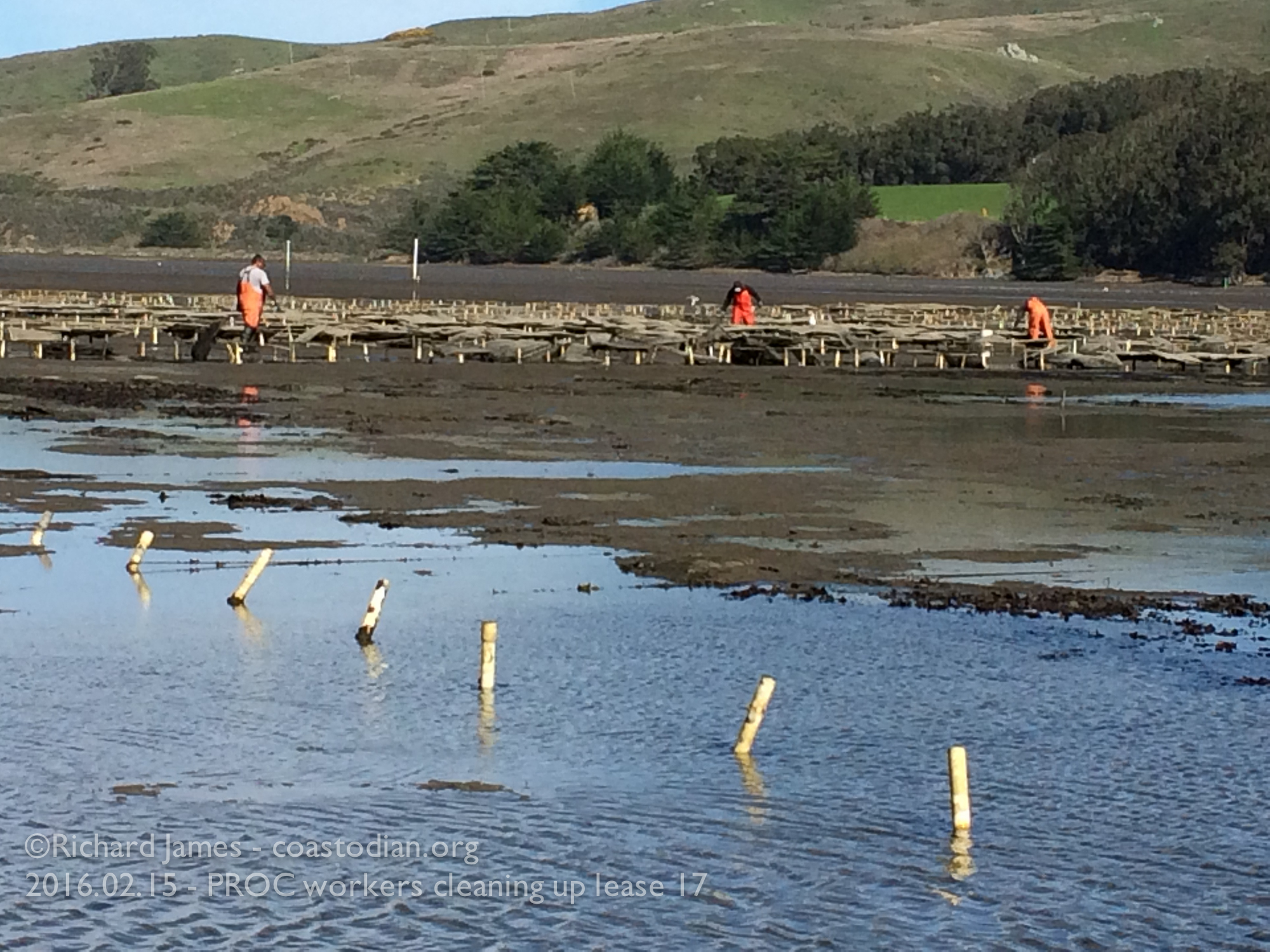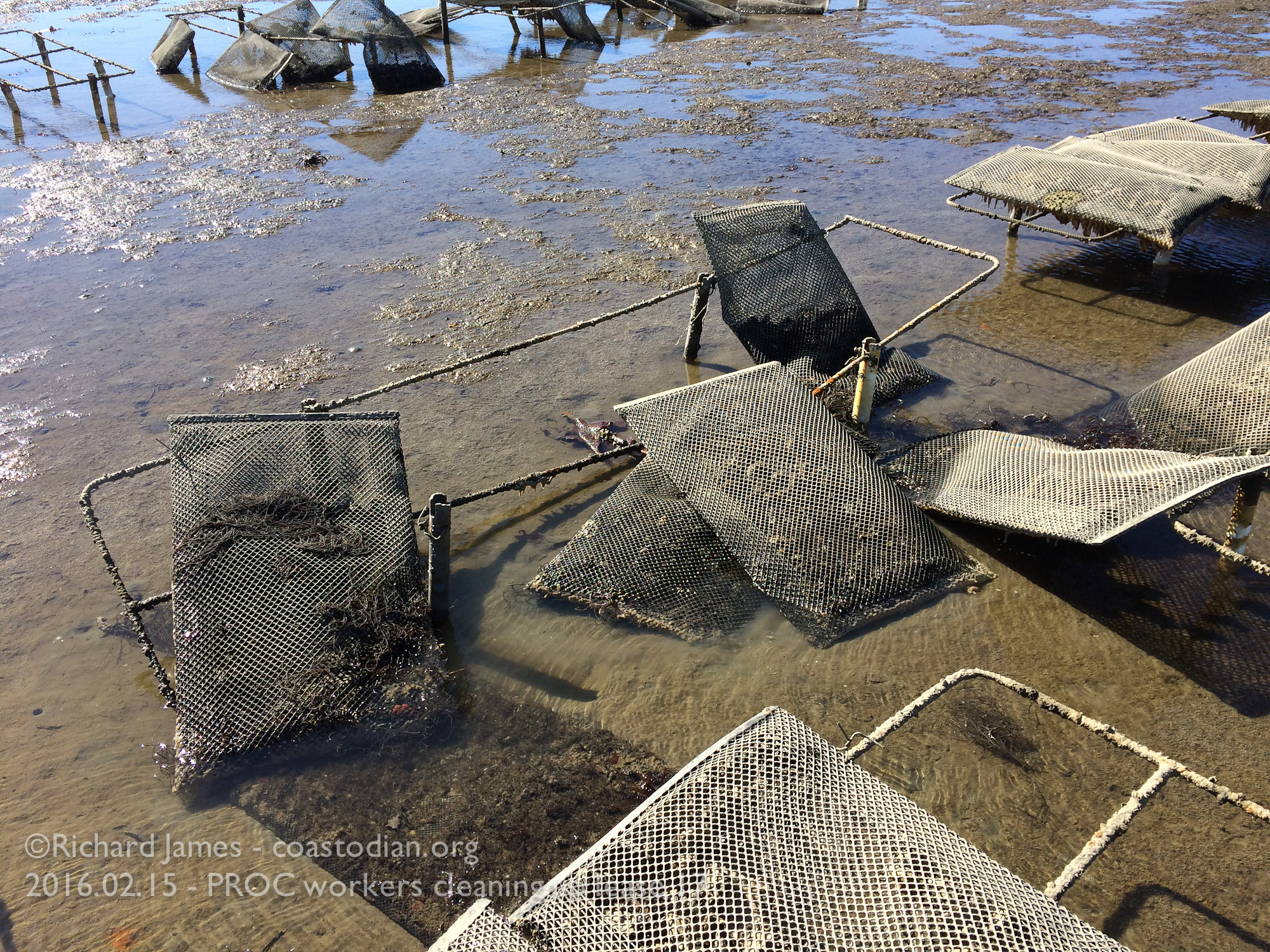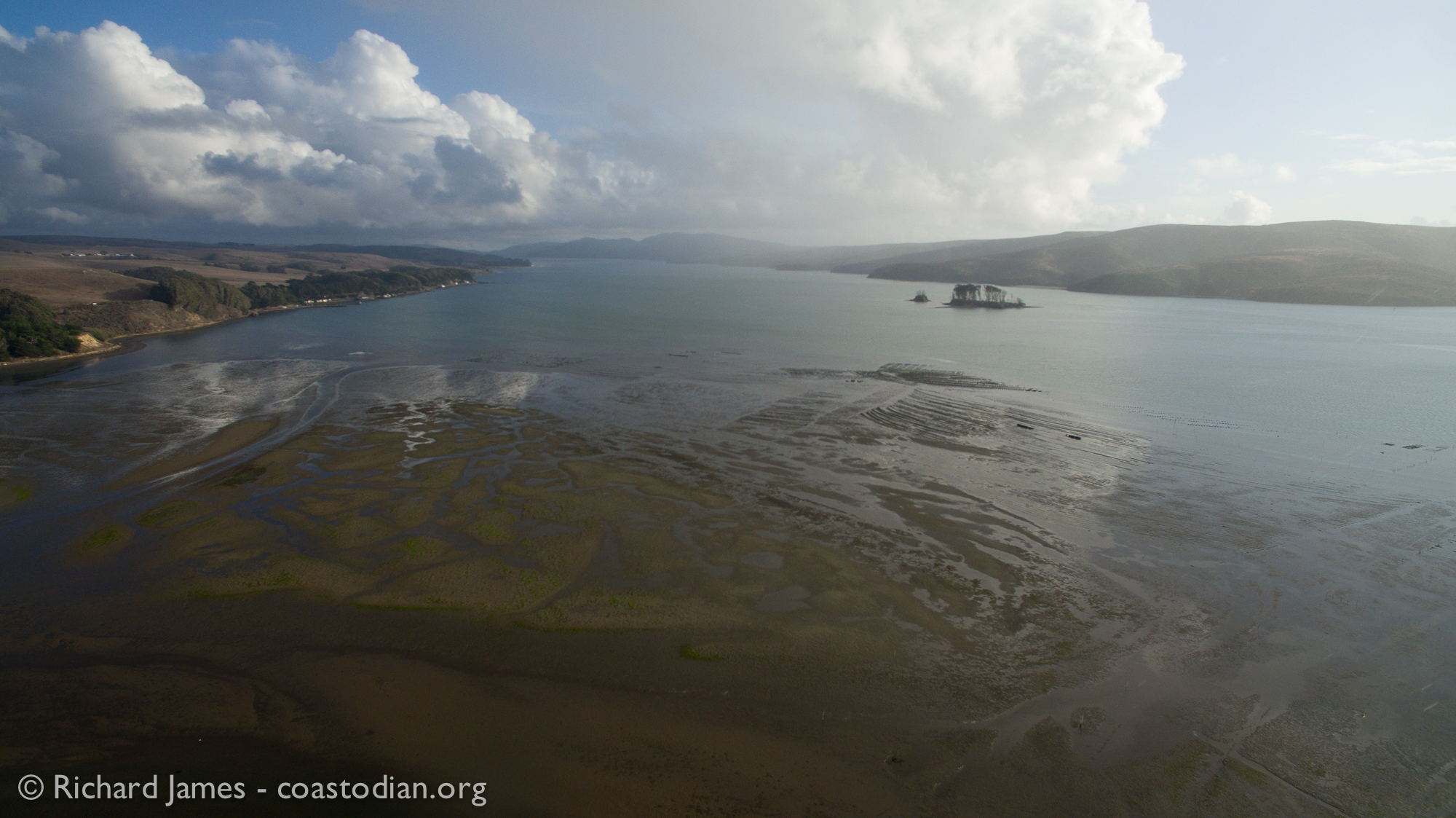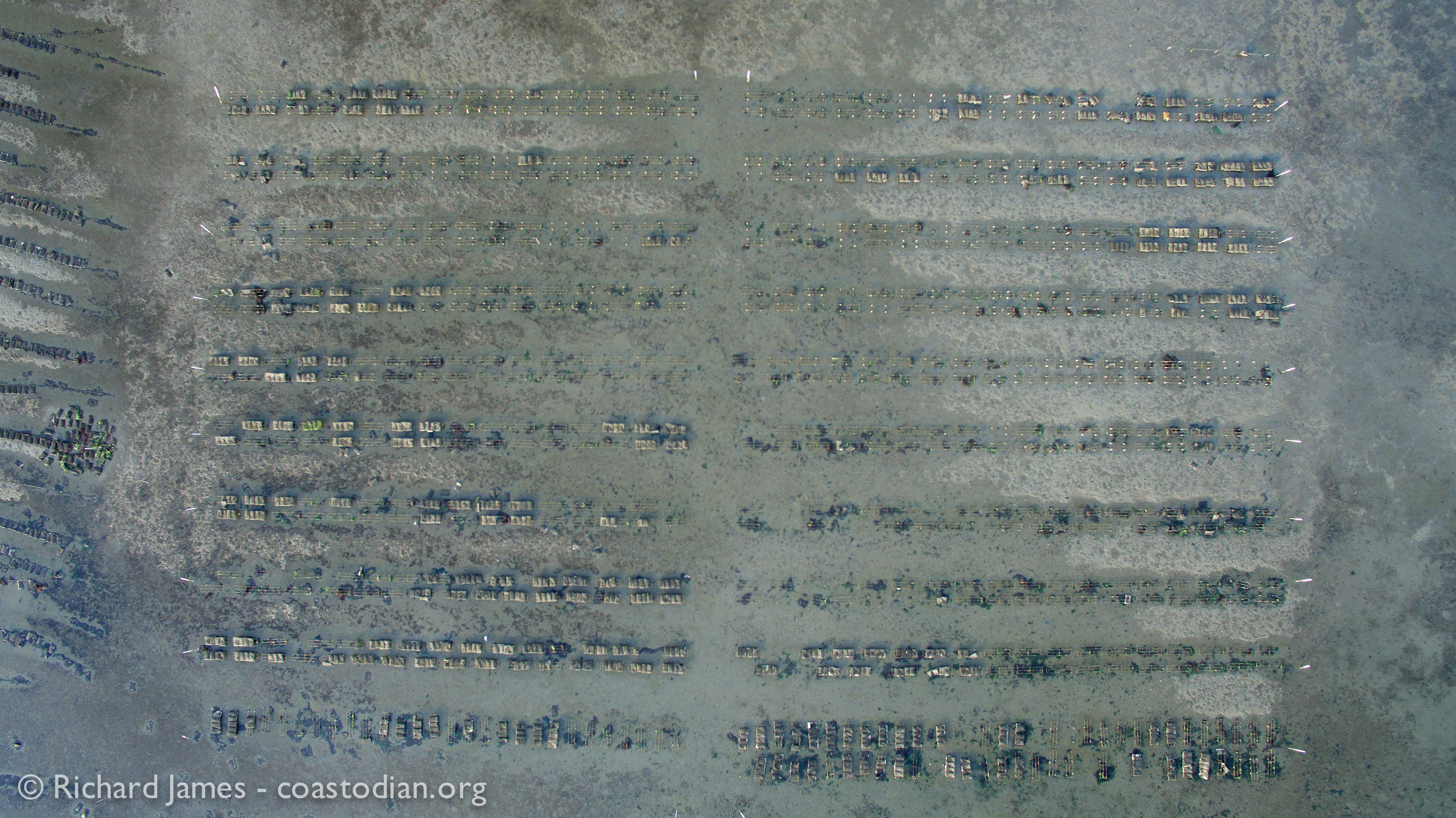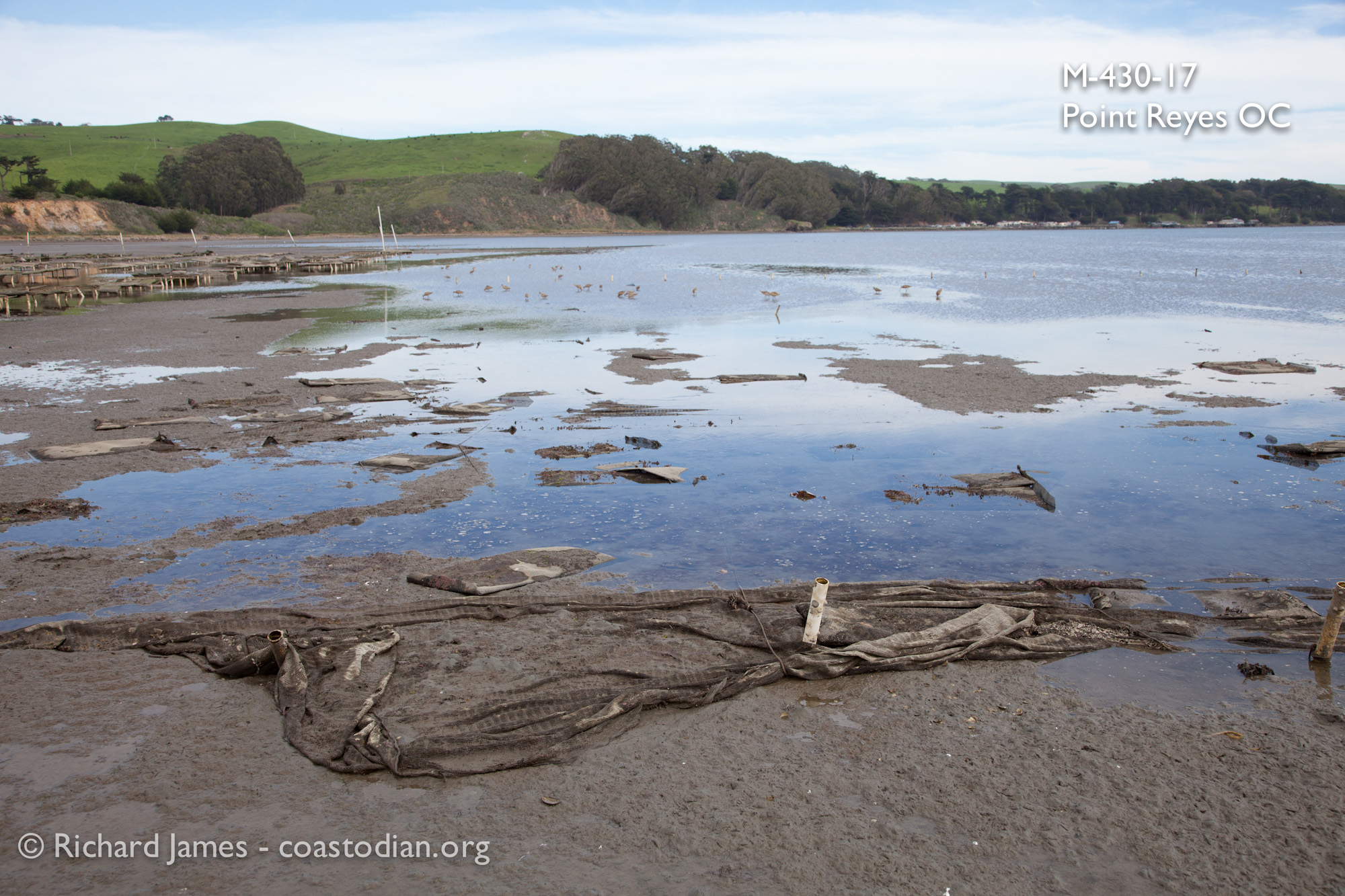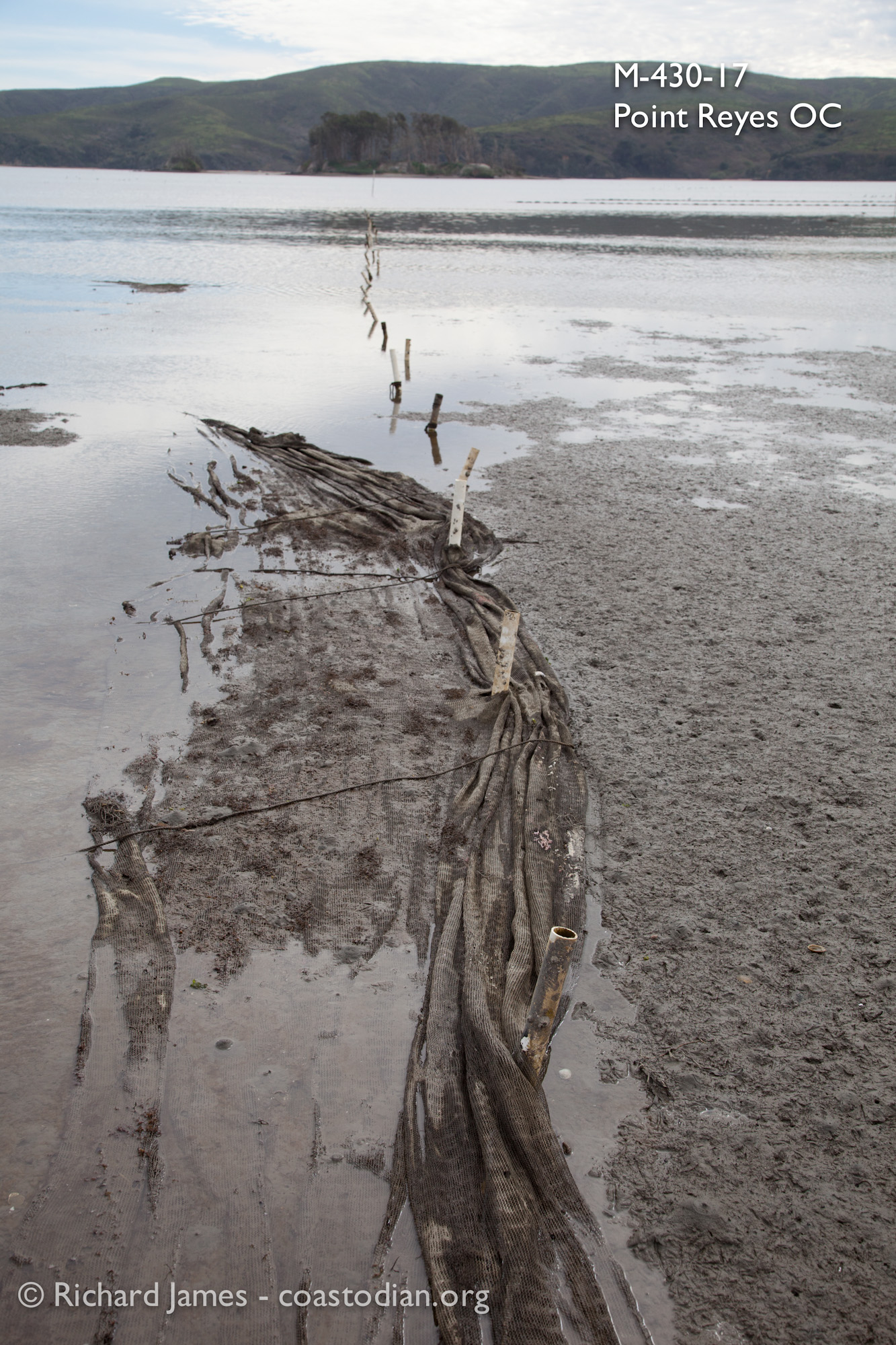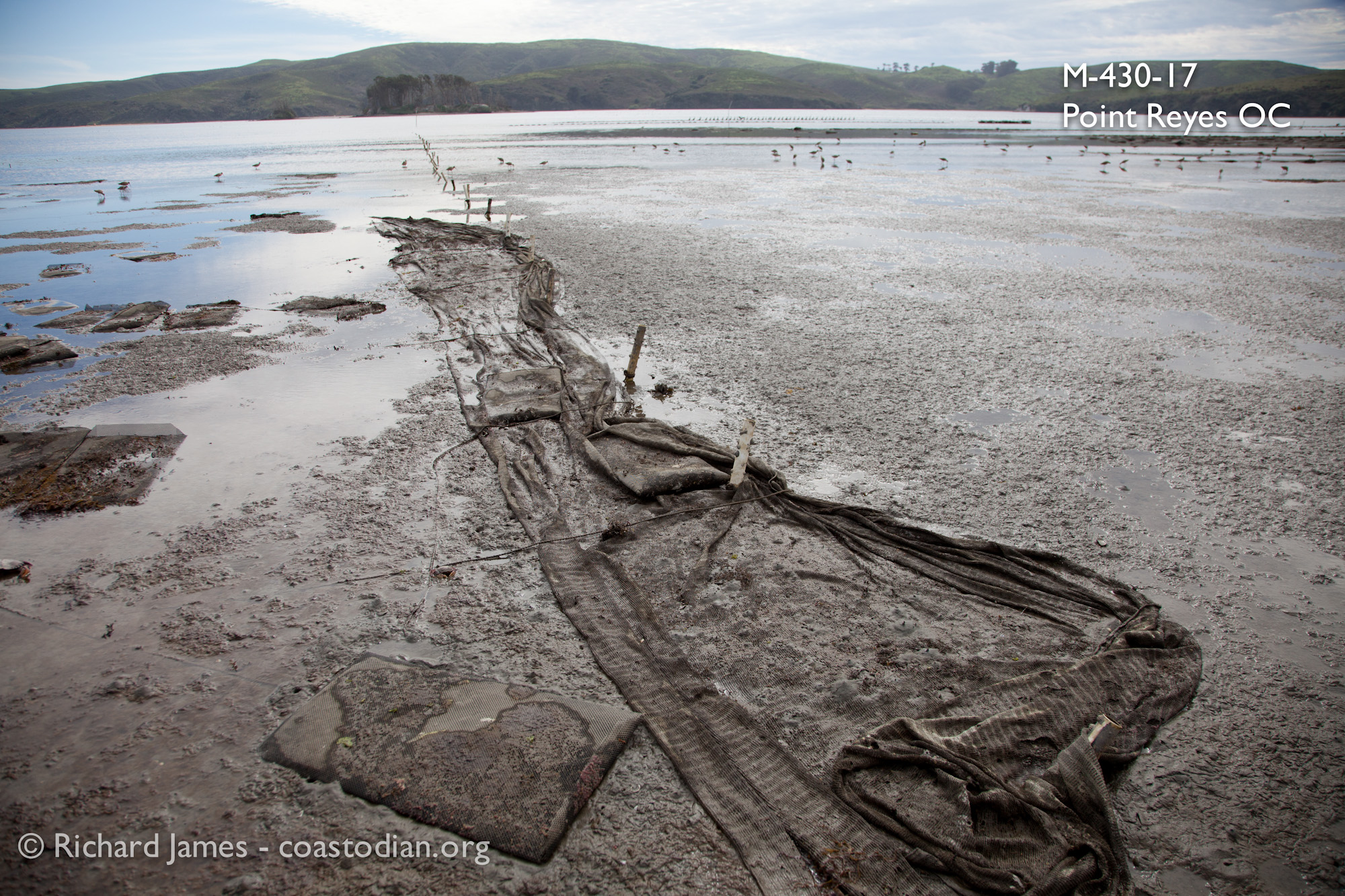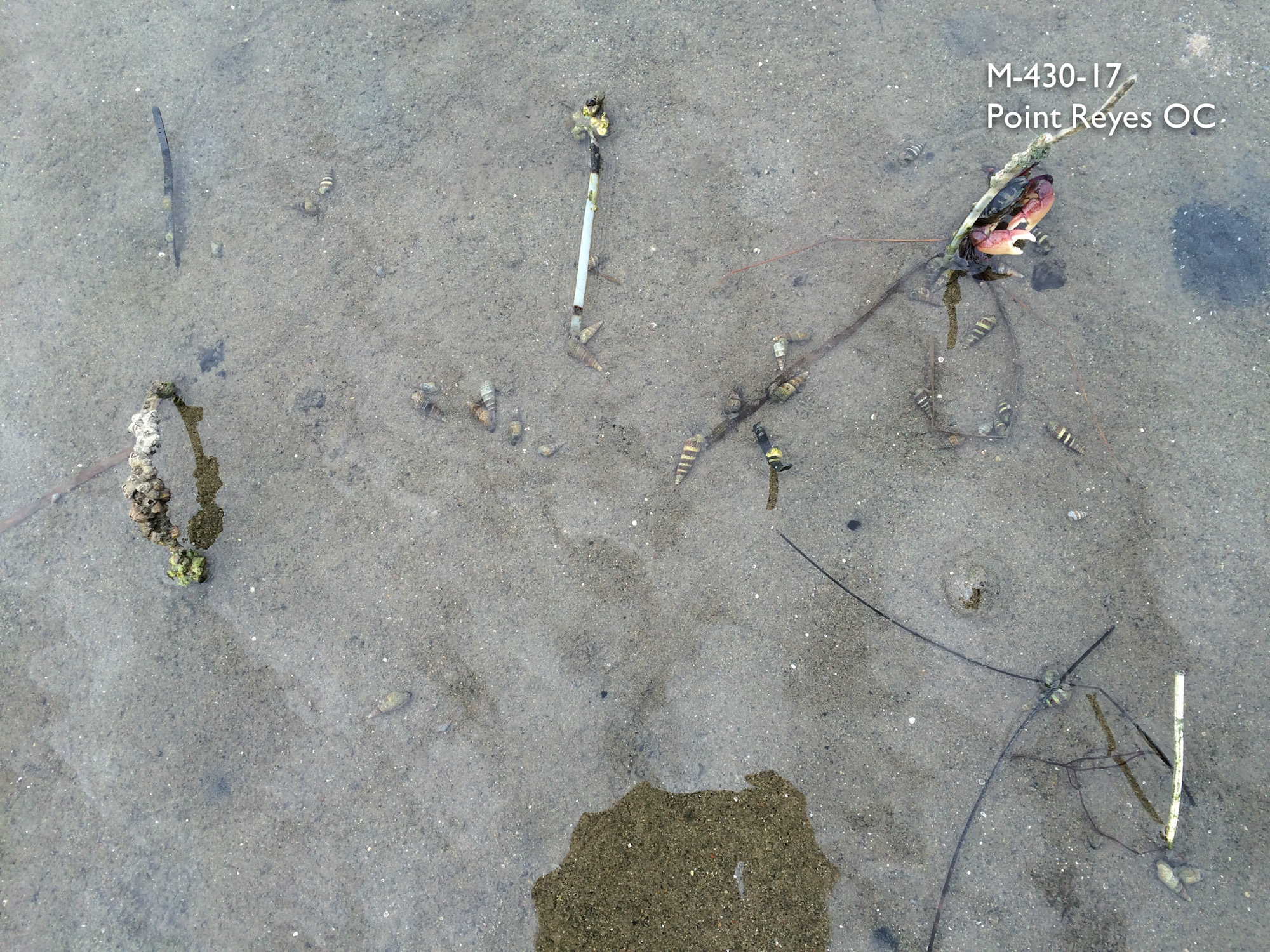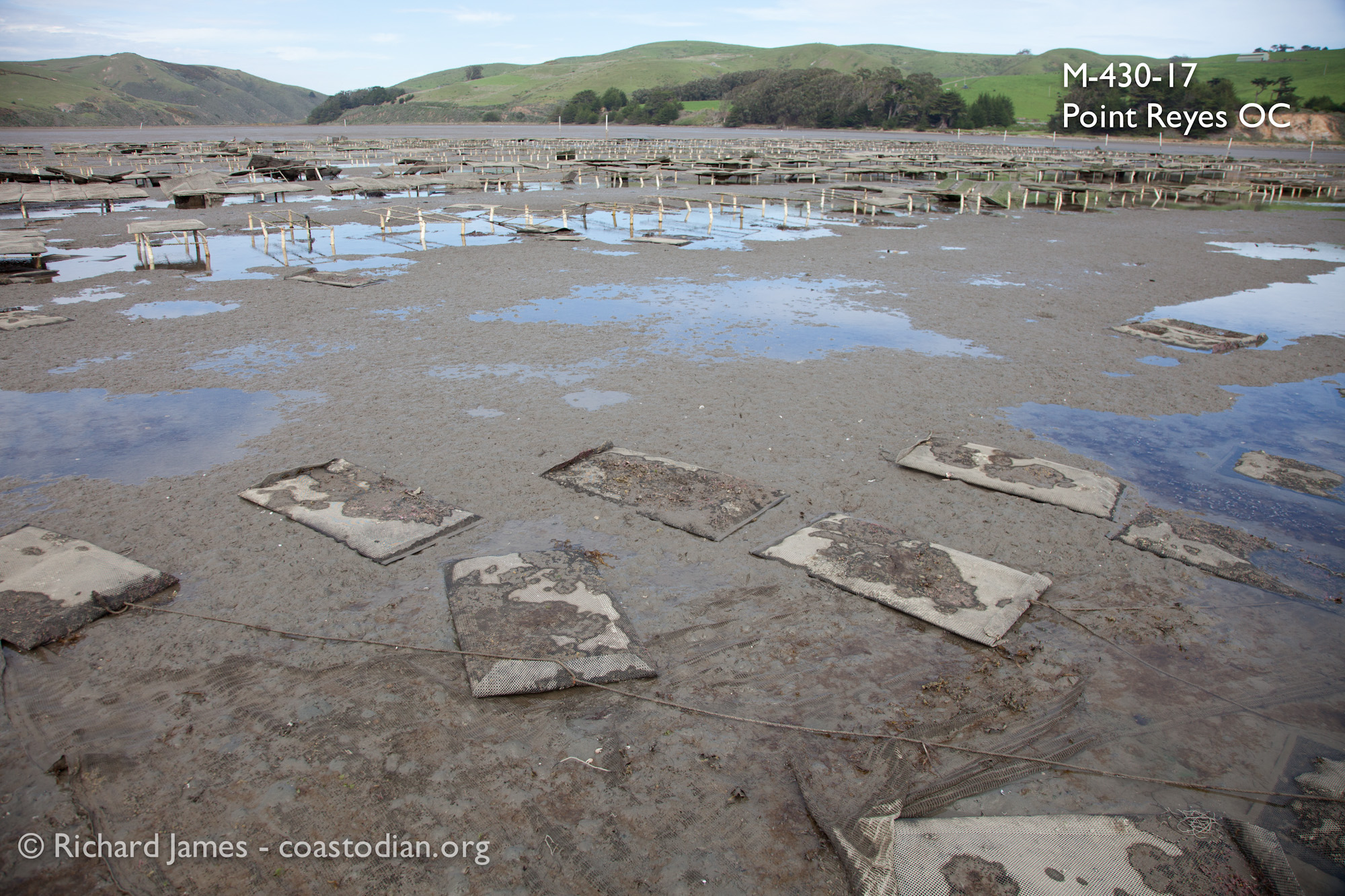Point Reyes Oyster Company (PROC) has been making a mess of Tomales Bay for decades. While long overdue, this past February the California Fish & Game Commission properly denied PROC’s 15-year lease renewal request on two leases to grow oysters & clams in Tomales Bay.
The leases were extended for up to twelve months to give PROC time to clean up the unacceptable mess of marine debris they’d made and show that they could raise oysters & clams in a responsible manner with a modicum of stewardship for our public lands.
When the agenda for the June meeting of the Fish & Game Commission arrived in my in-box last week, I was angry and disheartened because I knew that the substantial marine debris issues that I and others had raised previously have still not been addressed. This is very troubling, and that is why I plan to travel to Bakersfield next week to urge the Commission to continue to delay PROC’s 15-year lease renewal request until the company has demonstrated for a minimum of six (6) continuous months that it can be a responsible oyster operator on our public lands in Tomales Bay.
If you care about the health of our bay and the planet, please write California Fish & Game Commission at fgc@fgc.ca.gov and request that they NOT renew leases for Point Reyes Oyster Company until PROC proves it is a responsible grower and does everything possible to minimize loss of gear AND regularly patrols the bay and picks up the gear they do lose. I do not have a problem with our State leasing public water bottom lands for oyster growing so long as the oyster operators treat these leases as the privilege that they are, and exercise a stewardship ethic for Tomales Bay that is also part of the Greater Farallones National Marine Sanctuary, and don’t add significant amounts of marine debris to our ecosystem. Once PROC has actually demonstrated that it can be a responsible oyster operator for six months, I would be happy to support its longer lease renewal. However, I cannot support the company receiving a lucrative lease on our public lands at this time given their very poor care of Tomales Bay.
Here is text from the “outcomes” section of February’s FGC meeting during which the leases were NOT renewed:
11. Point Reyes Oyster Company, Inc. State water bottom leases for aquaculture
(A) Approve request to renew State Water Bottom Lease No. M-430-13
(Pursuant to Section 15406, Fish and Game Code)
(B) Approve request to renew State Water Bottom Lease No. M-430-17
(Pursuant to Section 15406, Fish and Game Code)
Received public comment.
The Commission approved a one-year extension of state water bottom lease Nos.
M-430-13 and M-430-17 under existing terms and conditions in lieu of lease
renewal, to allow the California Department of Fish and Wildlife Marine Region to
evaluate terms of a lease renewal, use of best management practices, and any other details that would be important for this lease. The Commission will consider renewal once lease practices and terms are clarified and resolved.
Ayes: E. Sklar, J. Hostler-Carmesin, A. Williams
.
Have a look at the images below and decide for yourself if PROC has made any significant progress in reducing the amount of plastic, plastic coated copper wire, rubber and other gear abandoned in Tomales Bay as they profit from the the very same waters.
.
Here we see a small portion of lease 17 near the mouth of Walker Creek where PROC appears to be growing oysters with the bag & rack method.
.
This image was recorded on March 14, 2015 Notice the bags strewn all over the bay floor.
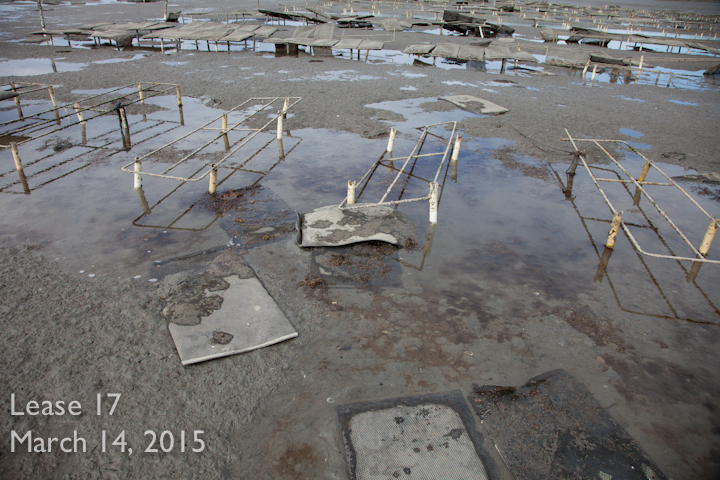
.
Another image from March 14, 2015

.
Shortly after their lease renewals were denied, PROC workers came out to collect loose gear and straighten up the same area. The workers told me to come out in two weeks and I would not recognize the place it would be so clean.
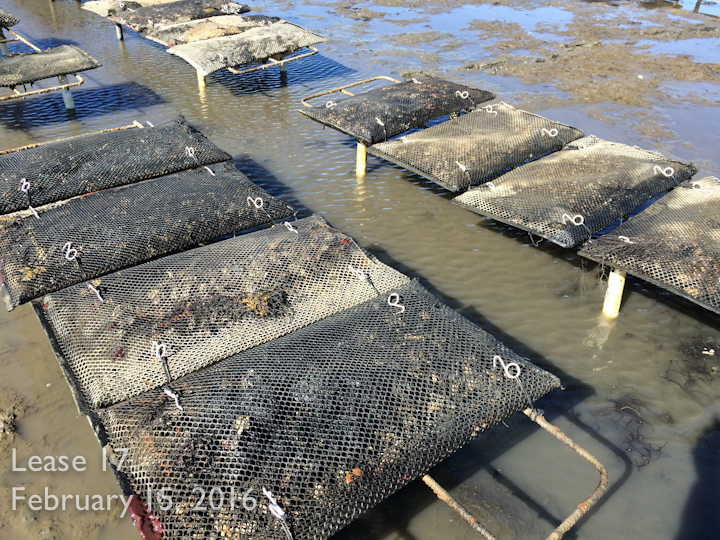
.
.
Two main things were done during this cleanup. 1) PROC workers collected dozens of bags no longer securely fastened to the iron racks designed to contain them. 2) Instead of securing the bags with plastic coated copper wire (which PROC has been dropping into the bay during harvest for many. many years), they changed fasteners and used rubber straps and plastic coated metal clips.
.
18 days after the cleanup, we see the bags are starting to come loose again. Close inspection reveals the straps are being stretched too tight and snapping. I shared this information with DFW staff as well as two oyster growers (I did not have PROC email info at that time)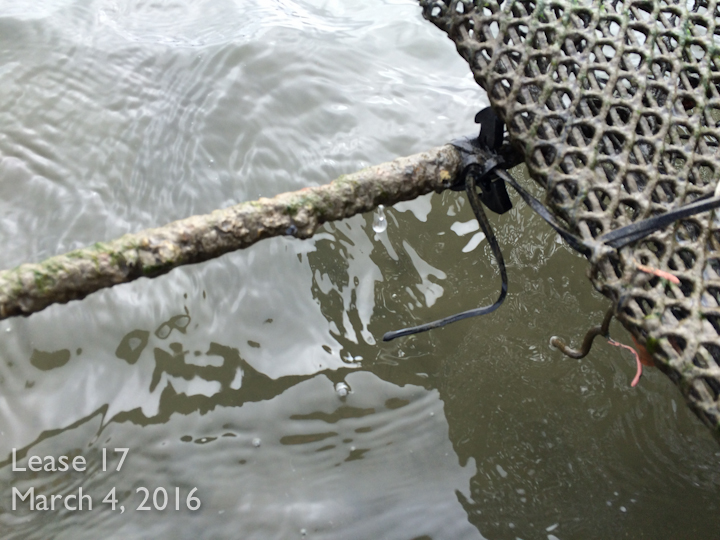
Nearly 4 months months after their cleanup, we see the area closely resembles how it looked 18 months BEFORE the cleanup, bags loose and again at the mercy of wind and tides.
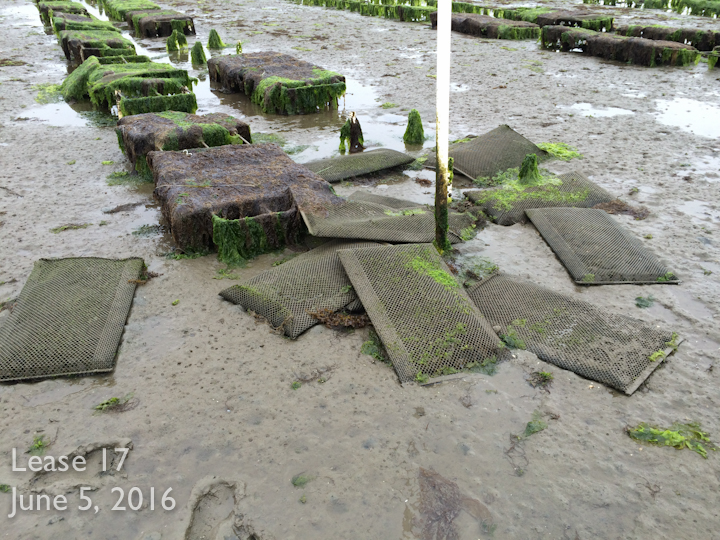

That tightly stretched rubber strap above is about to snap, letting this bag to be carried by wind and current.
.
Not only is the new method to secure bags to racks by PROC NOT working, it is releasing yet another type of plastic debris into Tomales Bay. The image below shows what was collected in 1.5 hours from Lease 17 run by PROC.
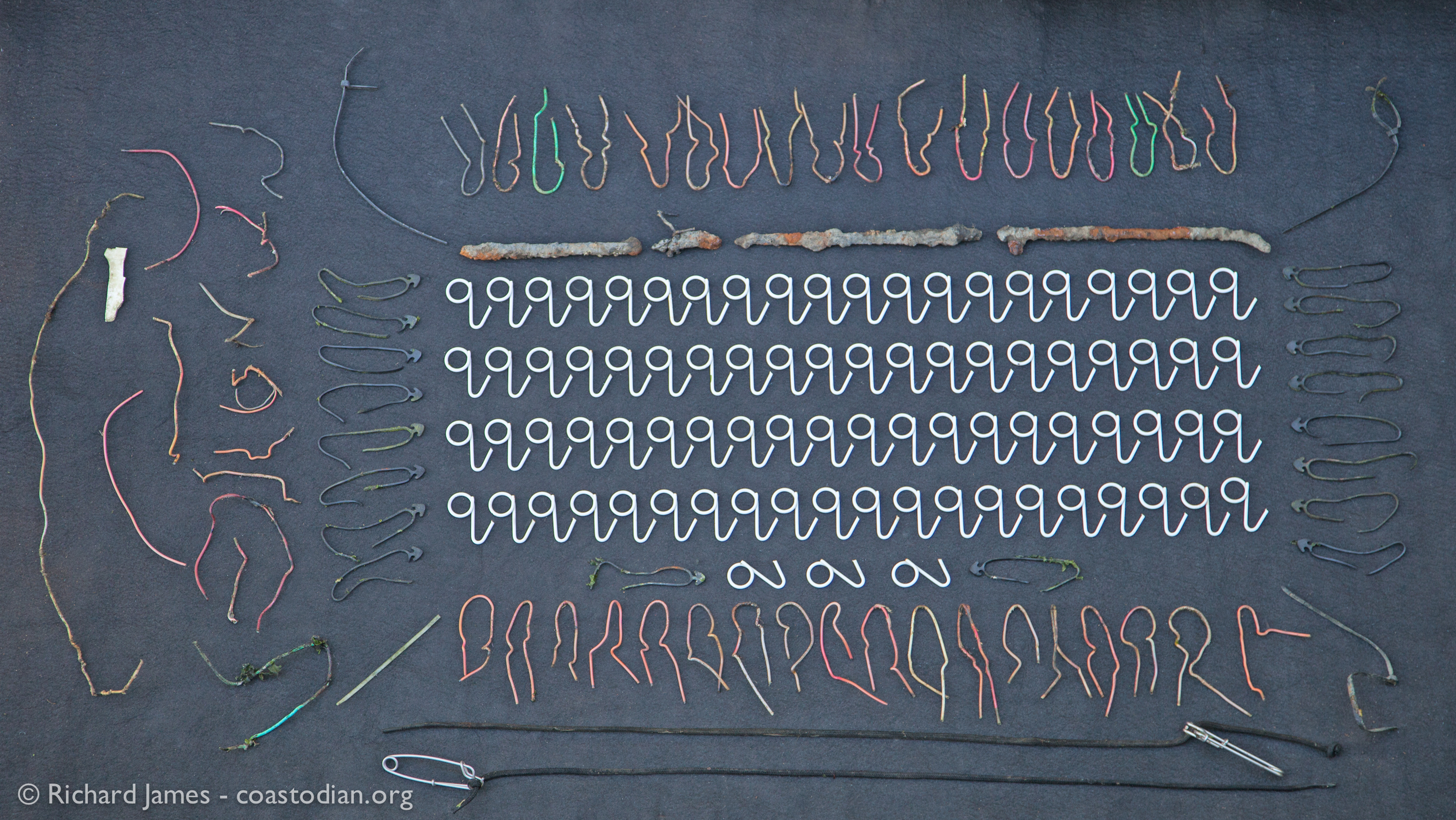
plastic coated copper wire, rusty iron rods, white plastic coated metal clips, rubber straps, zip-ties and rope with stainless clips collected from lease 17 on 5 June, 2016.
The loose bags are bad enough when they blight our beaches, or in less than a month become embedded, invisible parts of the ecosystem.

.
.
.
The bigger problem is when these bags are struck by boat props and cut into pieces which present a hazard to wildlife which eat this small plastic debris. One local fisherman caught a tuna 50 miles offshore with a small piece of oyster grow out bag embedded in its flesh. Plastic like that below embedded in the flesh of tuna.
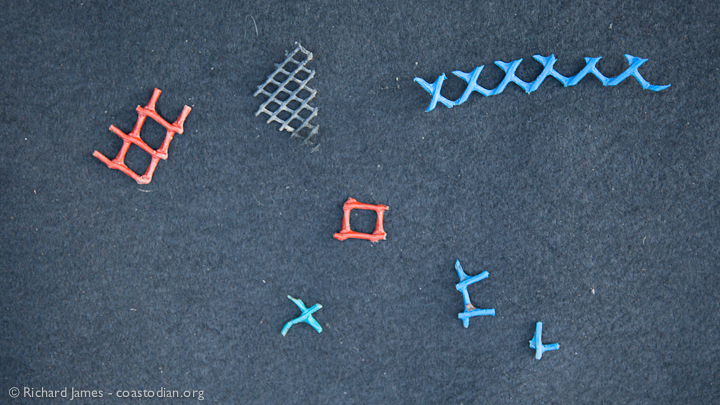
Tiny shards of plastic oyster farming debris collected in Tomales Bay.
©Richard James – coastodian.org
.
If you care about the health of our bay and the planet, please write California Fish & Game Commission at fgc@fgc.ca.gov and request that they NOT renew leases for Point Reyes Oyster Company until PROC proves it is a responsible grower and does everything possible to minimize loss of gear AND regularly patrols the bay and picks up the gear they do lose. I do not have a problem with our State leasing public water bottom lands for oyster growing so long as the oyster operators treat these leases as the privilege that they are, and exercise a stewardship ethic for Tomales Bay that is also part of the Greater Farallones National Marine Sanctuary, and don’t add significant amounts of marine debris to our ecosystem. Once PROC has actually demonstrated that it can be a responsible oyster operator for six months, I would be happy to support its longer lease renewal. However, I cannot support the company receiving a lucrative lease on our public lands at this time given their very poor care of Tomales Bay.
.

